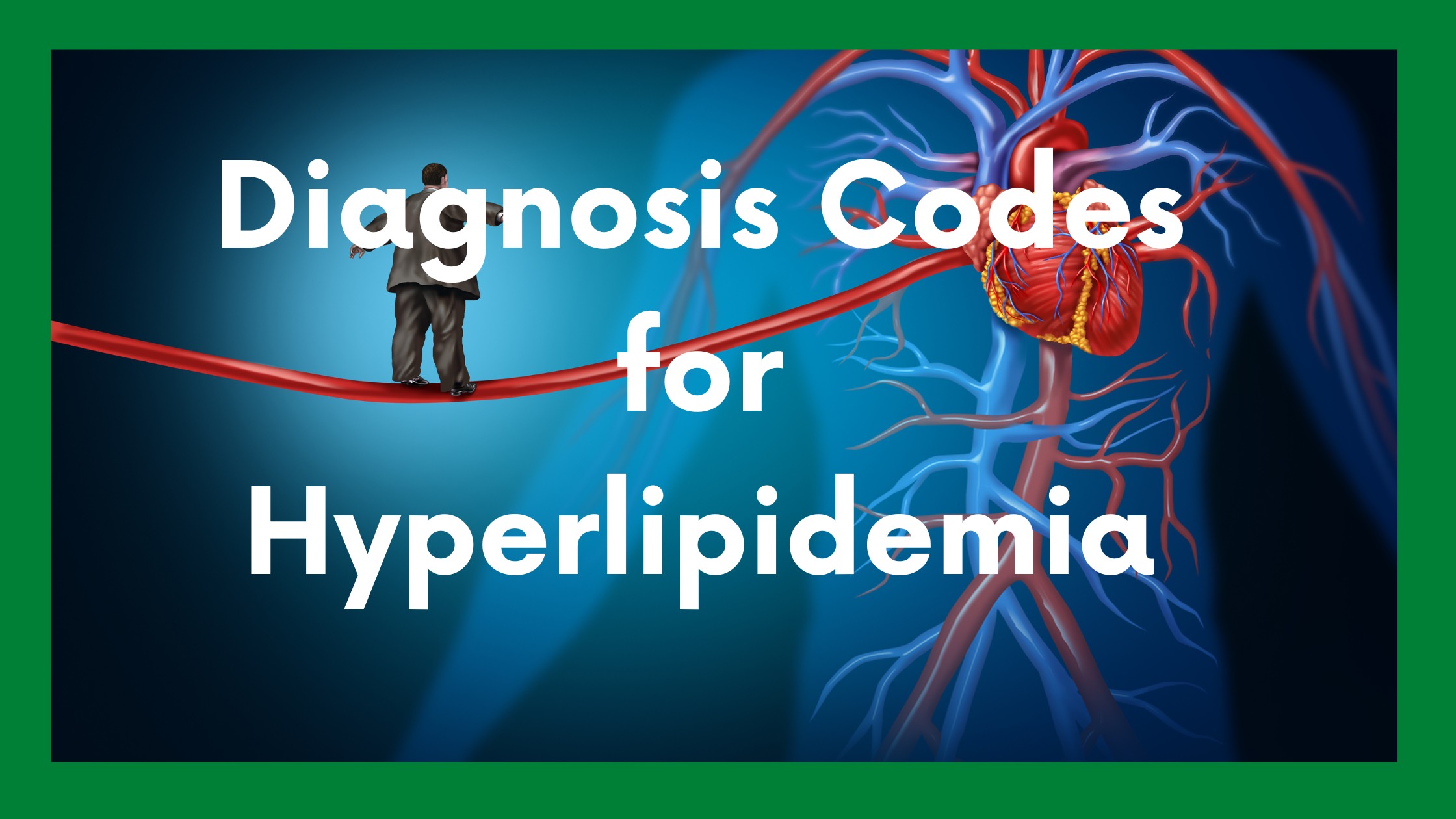Hyperlipidemia is a health related disorder caused by the increase in the amount of cholesterol in the blood, which is spreading rapidly in India. It is emerging as a serious disorder which is proving fatal for the health of the people. About 25-30% of people in urban areas are suffering from the problem of high cholesterol, while rural areas are not far behind and according to the estimated data, about 15-20% of the rural population is suffering from high cholesterol. Today’s run-of-the-mill lifestyle is quite stressful, due to which the risk of different types of diseases is increasing in people, and people are falling prey to different health disorders. Hyperlipidemia icd 10 code is E78. 5 for unspecified. All other related icd 10 code for hyperlipidemia is also updated in below table.
Table of Contents
- What is Hyperlipidemia ?
- Causes of Hyperlipidemia
- Effects of Hyperlipidemia on body
- Symptoms of Hyperlipidemia
- How to protect ourself from Hyperlipidemia?
- Hyperlipidemia icd 10 code List
- Conclusion
- FAQ
- Related Articles
What is Hyperlipidemia ?
In addition to hyperlipidemia, it is also known as hyperlipoproteinemia and high cholesterol. Cholesterol is a fatty substance and it does not dissolve in water, due to which it cannot reach other parts of the body by itself. Takes the help of lipoproteins and reaches through the blood. Cholesterol is normally manufactured by the liver in the body, but it is included in many foods that we take on a daily basis. Consuming excessively fatty foods that contain high amounts of fat increases the level of LDL cholesterol in the blood.
Too high of a normal level of LDL cholesterol or too low of a normal level of HDL cholesterol leads to the accumulation of fat in the blood vessels, due to which blockages occur in the blood flow, which increases the risk of heart related health. .
Causes of Hyperlipidemia
Hyperlipidemia has many causes, consuming a high-fat diet can cause high cholesterol. Some of the reasons are as follows-
◆Eating a diet that is high in saturated fat, trans fat and cholesterol can lead to high cholesterol, trans fat is found in fried foods and packaged foods such as biscuits and chips.
◆ Eating more meat, milk, eggs, butter, and cheese.
◆ Being overweight can increase triglycerides and LDL (also known as bad cholesterol) can also increase, and can put obstacles in the blood flow.
◆ Lack of physical activity or not exercising daily increases LDL.
◆Cholesterol starts increasing automatically after an age, and cholesterol can increase due to the side effects of many medicines.
Effects of Hyperlipidemia on body
Due to the increase in high cholesterol level, many serious health problems can arise in our body. Due to hyperlipidemia, cholesterol starts accumulating in the form of plaque in our arteries. Due to the accumulation of cholesterol in the arteries, the arteries become narrow and obstruction in the blood flow starts, due to which there is less blood flow in these arteries and there is a problem of high blood pressure.
High blood pressure causes many health complications. High blood pressure can lead to an increased risk of stroke, heart attack and peripheral artery disease, as well as exacerbation of chronic kidney disease.
Symptoms of Hyperlipidemia
Hyperlipidemia is a risk factor for other diseases and is not necessarily a symptom in itself. But if you do regular blood tests, then you can easily detect the increased level of cholesterol in the blood. Following are some of the main symptoms of hyperlipidemia-
◆ If you have a family history of heart attack, cardiac disorders or high cholesterol level.
◆ Very high blood pressure level.
◆If you have diabetes.
◆ If you are overweight then this can also be a symptom.
◆If you smoke, there may be chances.
◆If you have angina or feel severe pain in your chest.
How to protect ourself from Hyperlipidemia?
Since hyperlipidemia is a health disorder caused by increased cholesterol levels, adopting a healthy lifestyle that includes aerobic exercise and small changes in your diet to include low-fat foods can reduce the risk of high cholesterol to a great extent. . Some measures have been mentioned to get rid of the following hyperlipidemia-
◆ If possible, do light exercise daily for at least 30 minutes.
◆ To control high cholesterol, try to lower your LDL levels by eating more soluble fiber (such as found in grains, beans, peas, and many fruits and vegetables) as much as possible.
◆ Set goals and eat foods low in saturated fat and cholesterol.
◆Keep your extra weight under control.
◆ If you smoke, quit immediately.
◆Avoid excessive consumption of alcohol and try to get rid of this addiction.
Hyperlipidemia icd 10 code List
icd 10 code for hyperlipidemia is E78.5 for unspecified
| ICD Codes | Description |
| E78 | Disorders of lipoprotein metabolism and other lipidemias |
| E78.0 | Pure hypercholesterolemia |
| E78.00 | Unspecified |
| E78.01 | Familial hypercholesterolemia |
| E78.1 | Pure hyperglyceridemia |
| E78.2 | Mixed hyperlipidemia |
| E78.3 | Hyperchylomicronemia |
| E78.4 | Other hyperlipidemia |
| E78.41 | Elevated Lipoprotein(a) |
| E78.49 | Other hyperlipidemia |
| E78.5 | Hyperlipidemia, unspecified |
| E78.6 | Lipoprotein deficiency |
| E78.7 | Disorders of bile acid and cholesterol metabolism |
| E78.70 | Disorder of bile acid and cholesterol metabolism, unspecified |
| E78.71 | Barth syndrome |
| E78.72 | Smith-Lemli-Opitz syndrome |
| E78.79 | Other disorders of bile acid and cholesterol metabolism |
| E78.8 | Other disorders of lipoprotein metabolism |
| E78.81 | Other disorders of lipoprotein metabolism |
| E78.89 | Other lipoprotein metabolism disorders |
| E78.9 | Disorder of lipoprotein metabolism, unspecified |
Conclusion
Higher than normal cholesterol in the body and its increase is definitely a matter of serious concern. In the beginning, there is no such symptom in the beginning, with the help of which hyperlipidemia can be estimated, due to which its treatment is delayed. It happens. It is only when serious conditions become due to high cholesterol that it is known. These serious conditions include serious diseases like heart attack and stroke.
FAQ
Ans. Following are the 5 types of hyperlipidemia, which are present in plasma in the form of lipoproteins-
1. Chylomicrons (CM)
2. Very low-density lipoproteins (VLDL)
3.low-density lipoproteins (LDL)
4.Intermediate-density lipoproteins (IDL)
5. High density lipoproteins (HDL)
Ans. Due to hyperlipidemia, there is a huge accumulation of lipids in the arteries, due to which the size of the arteries changes and becomes very thin and the blood flow in the arteries decreases and the risk of heart attack increases.
Ans. If you are overweight then this can also be a symptom.
2.If you smoke, there may be chances.
3.If you have angina or feel severe pain in your chest.
Note- All information updated from reliable and authorized source of information and USA gov authorized web portals and other source of information like CMS, AAPC, ICD10data, etc. All content is used for information and education purpose only.
Related Articles
- ICD-10 Code For Lipid Panel
- Hyperbilirubinemia ICD-10
- ICD 10 code for Subdural Hematoma
- ICD 10 code for Cardiomyopathy
- ICD 10 Code for Obesity
The author and contributor of this blog "NSingh" is working in Medical Billing and Coding since 2010. He is MBA in marketing and Having vaste experience in different scopes of Medical Billing and Coding as AR-Follow-up, Payment Posting, Charge posting, Coding, etc.

